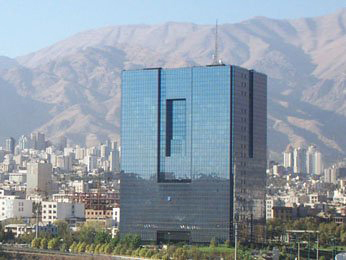A U.S. grand jury is investigating possible money laundering and other violations by Clearstream Banking SA and Iran's central bank for the benefit of Iran, a federal prosecutor said in court papers filed in a New York suit involving victims of terrorist attacks, Bloomberg reported on April 2.
The disclosure was made in the case of Deborah Peterson, the sister of James Knipple, a U.S. Marine killed when terrorists bombed the barracks of American armed services personnel in Beirut in October 1983. Victims of terrorist attacks and their survivors have sued banks, including Central Bank of Iran(CBI), in Manhattan federal court to enforce collection of a judgment of more than $2.6 billion.
The probe also includes an investigation of obstruction and illegal monetary transactions, and violations of the International Emergency Economic Powers Act, Assistant U.S. Attorney Alexander Wilson said in the subpoena.
Clearstream, a Deutsche Boerse AG (DB1) unit based in Luxembourg, agreed in January to pay $152 million to settle civil claims it violated U.S. economic sanctions on Iran. The bank used an account at an unidentified U.S. financial firm to hold $2.81 billion in securities on behalf of the Central Bank of Iran, according to the Treasury Department.
The accord didn't bar the U.S. from prosecuting the bank, according to the agreement.
'Acts Undertaken'
The U.S. seeks "property owned by, or held for the benefit of, the Islamic Republic of Iran or any of instrumentalities, including but not limited to the CBI, by Clearstream Banking SA or any of its subsidiaries," according to a March 27 federal grand jury subpoena filed by prosecutors in the office of Manhattan U.S. Attorney Preet Bharara.
The grand jury seeks information about "any services rendered or acts undertaken by Clearstream for the benefit of the Islamic Republic of Iran or any of its instrumentalities," according to the subpoena, which requires testimony and evidence to be given later this month.
Liviu Vogel, a lawyer for Peterson, said in a letter to U.S. District Judge Katherine Forrest, who's presiding over the case, that his office was served with a federal subpoena for "all records concerning Clearstream's possession or control of property beneficially owned by Iran or the CBI," and "services rendered by Clearstream for the benefit of Iran or the CBI" as well as copies of all filings he's made in the case.
Notified Lawyers
In his letter, Vogel said he had notified lawyers for Clearstream that he intends to comply with the subpoena unless he receives a court order prohibiting him from doing so.
Vogel, who is lead plaintiffs' counsel and also represents more than 800 other victims and their families involved in the Beirut attack, declined to comment when asked about the federal probe.
In July, Forrest agreed to release more than $1.9 billion held in a Citibank NA omnibus account for Clearstream, after concluding Iran had an interest. Those funds were used to establish a trust for victims of terrorist attacks, including those in the 1983 bombing in Lebanon, court records show.
The CBI has also challenged Forrest's decision in which she ruled before trial that the funds must be turned over, citing the Terrorism Risk Insurance Act. Plaintiffs in that case represented U.S. citizens killed in Iran-sponsored attacks, including the Lebanon bombing and the attack on the Khobar Towers complex in Saudi Arabia.
Barracks Bombing
U.S. District Judge Royce Lamberth in Washington in 2007 ordered Iran to pay more than $2.6 billion to relatives of 241 soldiers killed in the 1983 bombing of the barracks in Beirut.
The CBI has claimed the ruling is barred by the U.S. Foreign Sovereign Immunities Act, according to court papers.
Lindsey Chaffetz, a lawyer for the CBI, didn't immediately return a voice-mail message left at his office seeking comment about the government's subpoena. Jennifer Queliz, a spokeswoman for Bharara, declined to comment.
Nicolas Nonnenmacher, a spokesman for Clearstream, confirmed in an e-mailed statement that the bank was "informed about a grand jury subpoena" served on Peterson's lawyer Vogel.
"The subpoena indeed requests data on the property of Iran including the Central Bank of Iran held by Clearstream and any services or acts undertaken by Clearstream for the benefit of Iran including Central Bank of Iran. We have currently no further information about any investigation," Nonnenmacher said in the statement.
Compliance Program
As part of the accord reached in January with U.S. Treasury officials, Clearstream agreed to implement a new compliance program.
Separately, Forrest on March 28 ruled before trial that a 36-story New York City office tower and six other U.S. properties must be forfeited by its co-owner, Assa Corp., because the company acted as a front for Iran in violation of the U.S. embargo and federal money-laundering laws.
The U.S. sued Assa, based in the U.K.'s Channel Islands, and the Alavi Foundation, a successor to a foundation created by Shah Mohammed Reza Pahlavi, who was overthrown as Iran's leader in 1979. The office building at 650 Fifth Ave. was constructed by the Pahlavi Foundation, a nonprofit set up by the Shah.
The U.S. claimed Bank Melli, Iran's national bank, co-owned the building through Assa. Forrest ruled the Manhattan tower, worth more than $500 million, and the other properties should be forfeited. Forrest also ruled that at least 18 other victims of Iran and their families who sued Assa were entitled as creditors to the properties and assets. The judge hasn't ruled on how the assets and property will be divided between the U.S. and the plaintiffs.






